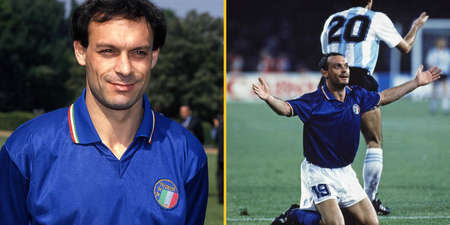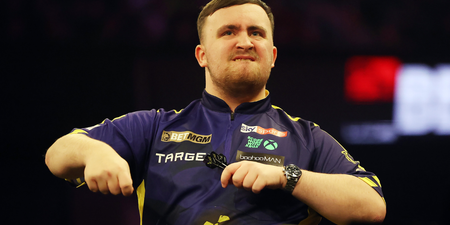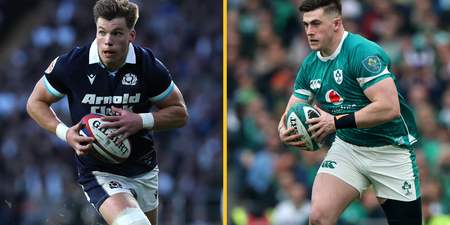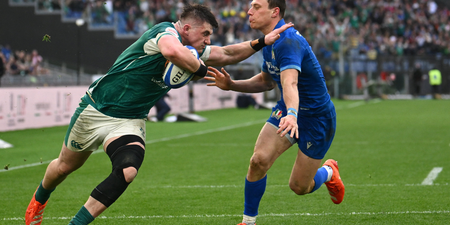Can you explain the difference between the diet plan a boxer would follow during the Olympics as opposed to rower or a track athlete?
A track athlete might have a preferred racing weight but they don’t have to step on the scales before competition. For boxers and some rowers this will always be in the back of their mind so their food intake and training will vary based on what weight they are. Some sweating down will be required so the priority after weigh in will be recovery of these fluids and getting some fuel into the tank as often there is not a lot of time till they fight or row. Foods like porridge, fruit, toast, yoghurts, smoothies or shakes will be popular at this point especially if there is only a small amount of time before competition.
For the track athletes it will also depend on what event. Long distance events the priority is to eat bigger amounts. Most will eat everything but a priority will be balanced high quality foods and keep processing to a minimum. One of the distance athletes sitting down to dinner recently said that “this is plate one of four”. For the shorter distances similar guidelines apply just in smaller amounts.
One of the most important messages will be that athletes keep to similar plans to training and not try and change things a lot.
With short turnaround between events what are the key things an athlete must eat to ensure they are in peak condition for their next event?
Recovery in terms of carbohydrates and protein will be essential and the heat is going to add an extra element to focus on in terms of fluids and electrolytes. When turnaround times are short then the main aim will be eating and drinking as soon as possible after the event.
Some of the athletes will be close to the Olympic village which means that getting food will be easier whereas other sports are up to a couple of hours travel time there and back. Other factors which need and have been considered are times of events which have been scheduled often late at night.
This means that athletes will need to be well prepped and have snacks and drinks with them that they can consume ASAP and will survive the heat. Chiller bags will help with this. All of this will need a little bit of planning and preparation but at this stage most of these athletes are well experienced and have looked at this as part of their planning.
Other issues could play a part in the recovery phase. Nerves or excitement can reduce appetite and therefore reduce food intakes. Liquids can help here as they are easier to consume and also will help with re-hydration. Finally athletes will be interviewed by the media after their heats / competition which could delay recovery.
How varied are the diet plan between boxers in different weight divisions?
Food intakes in terms of the quantity for boxers in different weight divisions will be hugely different. In the heavier weights the boxers have to worry less about body weight but from a sports nutrition and science view point the aim will be to ensure that the boxers body composition is as good as it possibly can be.
You want them to have more muscle mass and less fat mass so that they can use their weight to the best possible advantage. For any boxer that does have to make weight in the higher divisions the weight loss is usually a smaller percentage of the overall weight so if done well will have less of an impact.
The lighter weights are much more difficult for many reasons. Boxers often try and achieve weights that they naturally should and would not be and any weight loss here will be a bigger proportion of their overall weight. Hence the effect in a competition can be much greater especially if the competition lasts for 10+ days as it might in the Olympic Games.
The temptation is to cut food intake significantly and particularly carbohydrate as you see changes in the scales quicker. The difficulty with this is that you risk not being able to maintain intensity in training and you also leave your immune system susceptible to infection. If you get sick you can’t train, then this has an impact on weight. It’s all connected. For these boxers, getting a balanced diet is a real challenge if you are trying to get all the nutrients into small meals.
The aim is really to try and introduce small changes over long periods of time so that boxers don’t feel that they have to make huge sacrifices. There will always be some element of weight cutting at the end and the important thing then will be recovery post weigh in.
What are the key things to eat for endurance events such as rowing?
Carbs will be king in any endurance event. There are many message floating around this area in terms of high fat, low carb, carb loading, high protein, ketogenic but from my experience to ensure you have a healthy athlete that can consistently train and compete then they will have to have a feeding strategy that includes carbohydrates. There may be phases during training and the off season where other plan may be used maybe to keep body composition in check but ultimately athletes when racing will need to ensure they have their feeding strategy correct.
Light weight rowing does throw another issue and that is that they have to make weight so the athletes and the support team will have to monitor the load of training and ensure that food intake is enough to allow this but achieving slow weight also at the same time. Hydration will be very important in the heat with temperatures reaching mid 30’s on some days. I think the recovery meal of the minute is Steak and Spuds!
Heavy weight rowers have to eat huge amounts of food to meet their energy requirements and they have a two breakfast approach which they will start the day with two breakfasts. Oats, cereals, bagels, eggs, fruit, yoghurts will all form the basis of much of these and a good few snacks also. In terms of main meals this will usually be timed around training. The usual foods that the general public consumes rice, potatoes, pastas, meat, chicken, fish and veg will all be part of these meals except in much larger amounts. It is not unusual to be looking at calorie intakes of 5000 on a daily basis which may sound great but actually after a while this can be the biggest problem these rowers face in that it becomes very boring.
How closely do you work with the individual and team coaches to ensure the athletes’ diet plans are in sync with their training regimes?
Nutrition will generally work closely with the coaches to ensure that we know the training plans but also that the coaches can reinforce the messages to the athletes. They will be away with them the most and will be able to ensure that the athlete can carry out the plan also. So for example in the pre Olympic training camp we have worked with coaches to establish training times and then meals are timed around this. We also have a team room with a large variety of snacks which means that athletes who require larger amounts of food can then snack immediately after training.
Are athletes allowed break out from the diet plan during the Games?
The games will last different lengths of time for different sports. So if you are in a sport such as Judo you could be on the first day and your competition is then finished and others go right to the end. The aim will be not to over eat as the food is available round the clock. Once athletes have finished competition I am sure they will take time to enjoy the experience and the food that the village and Rio has to offer. I am not really a fan of the term “cheat meal”.
I think it brings feelings of guilt and anxiety and a certain amount of obsessing about food and given the strong links between psychology and behaviours around eating in some individuals this actually can be negative. We have to remember that these athletes do a huge amount of training and expend a huge amount of energy in the process and sometimes it is actually important that a lot of calories are consumed to ensure they can do what they do. The skill is actually in pulling food intakes back when training or competition is finished.
The National Dairy Council has partnered with the Irish Institute of Sport to share how top Irish Athletes are built by protein but powered by dairy. To learn more about the importance of dairy in sports nutrition, visit http://www.ndc.ie/sports-nutrition or see the hashtag #poweredbydairy























































